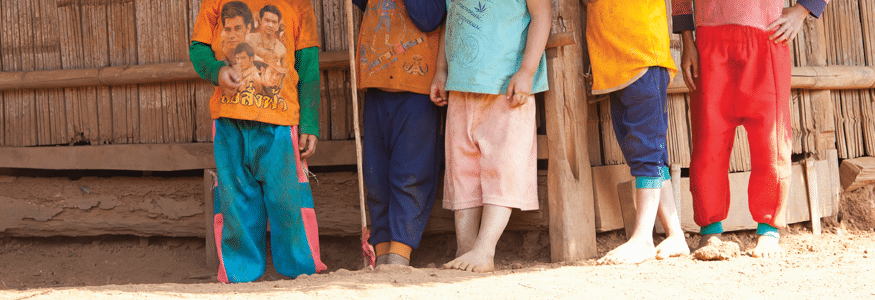Dying from Diarrhea
The Cause Might Surprise You
Celiac disease is an autoimmune gastrointestinal condition that affects about 1% of the North American population.1 The worldwide prevalence is unknown, due to lack of awareness and testing in developing countries and insufficient research. A group of international researchers recently completed a study that they hope will stimulate debate and serve as a first step toward understanding and lessening the impact of celiac disease around the world, especially in poorer countries in Africa and Asia, where they propose most celiac-related, preventable, childhood deaths occur.2
For individuals with celiac disease, eating gliadin, a grain-based protein found in gluten, causes an unusual immune response that leads to the flattening and altering of the millions of microscopic finger-like projections (villi) that line the inner wall of the small intestine. Since the villi are responsible for absorbing nutrients from our food, those who have celiac disease can experience nutritional deficiencies. Celiac disease causes symptoms such as iron deficiency anemia, diarrhea, weight loss, fatigue, breathlessness, cramps, bloating, irritability, and skin problems. Although there is no cure, the treatment for celiac disease is very simple: consume absolutely no gluten, as even one molecule of gluten can trigger the immune response. In most cases, an entirely gluten-free diet allows the intestine to repair itself and recover fully.
Untreated celiac disease, however, can be a very dangerous situation, particularly for children. In poorer countries, it is common for children to experience chronic diarrhea and malnutrition for a number of other reasons, such as food-borne and infectious diseases, but it is not common practice to look for celiac disease among these populations. Adding to this problem is that most international aid is in the form of gluten-containing nutritional supplements. For children who have celiac disease, these foods will make their symptoms worse and can lead to death.
The researchers in this recent study used available data related to children younger than five years of age in all countries from 1970 to 2010. They found no reports of any population in the world that is free from celiac disease. They analyzed estimates of population prevalence, probability of non-diagnosis, and likelihood of mortality among children who are undiagnosed. Their resulting model suggests that approximately 2.2 million children younger than five years of age were living with celiac disease in 2010 and that 42,000 of them could die each year. Based on pre-existing 2008 data, the researchers were also able to estimate that celiac disease was responsible for 4.2% of the 1.04 million worldwide diarrhea-related deaths of children younger than five years of age.
These results are particularly distressing when you consider how easy it would be to treat these children. They do not need expensive medicines or surgeries; simply avoiding gluten could save their lives. The study authors recommend further research into celiac disease around the globe, as well as new awareness and patient-management strategies in developing countries. These would include new guidelines for distributing international food aid, particularly to malnourished children, and new public health strategies that include, if not the standard diagnostic tests of Western countries (as this would be economically impractical), at least the implementation of a temporary gluten-free diet, as a presumptive diagnosis, for children who exhibit persistent diarrhea, malnutrition, and failure to thrive.
This study’s results show that celiac disease is a global health problem contributing to avoidable suffering and death of children.


